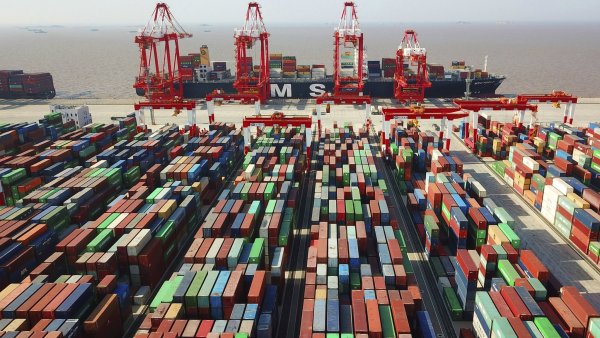
The Nigerian Shippers’ Council (NSC) says the construction of an Inland Dry Port (IDP) at the terminal end of the ongoing Lagos-Ibadan standard gauge railway line willl end the perennial traffic gridlock on the nation’s seaports, especially Tin Can Island and Apapa ports.
Recall that the Federal Government, the Oyo State government and the CRCC Construction Company Limited have agreed to construct a $134million new Ibadan Inland Dry Port.
Speaking on Tuesday when he led the Minister of Transportation, Chibuike Amaechi and top Oyo State government officials to the IDP location at Olorisa Oko, Ibadan, the Executive Secretary of the NCS, Mr. Hassan Bello said the IDP would provide 3000 direct and over two million indirect jobs.
“It has an 18-month construction time. It will be a modern facility driven by technology and we try to avoid the mistakes of the seaports.
“Most of the land will be for industrial park and truck transit parks so that there won’t be congestion but most importantly, the dry port will eliminate the perennial congestion at the seaports in Lagos and other places and we will like to move cargoes out of the port to hinterlands because port is not a storage place.
“The dry port and the industrial park which will seat on 90 hectares of land will help transportation of cargoes to the hinterland. Cargoes from here to Ibadan will be sorted out and sent as fast as possible to respective destinations.
“The employment content is 3000 direct employment and 2million indirect jobs. It will be an 18- month construction time and the bid will be opened by 16 April so we have qualification by May, 2019,” Bello said.
He added that the IDP will act as a cargo consolidation point and a Customs clearance for both export and import of cargoes destined for other South Western states.

AltBank, Partners Move To Establish AI-Driven Hydroponic Farm At FUNAAB
Central Bank Of Nigeria Cuts Interest Rate To 26.50%
Sterling HoldCo Confirms Full Recapitalisation Of Banking Subsidiaries
Nigeria’s Inflation Rate Slips To 15.10% In January — NBS